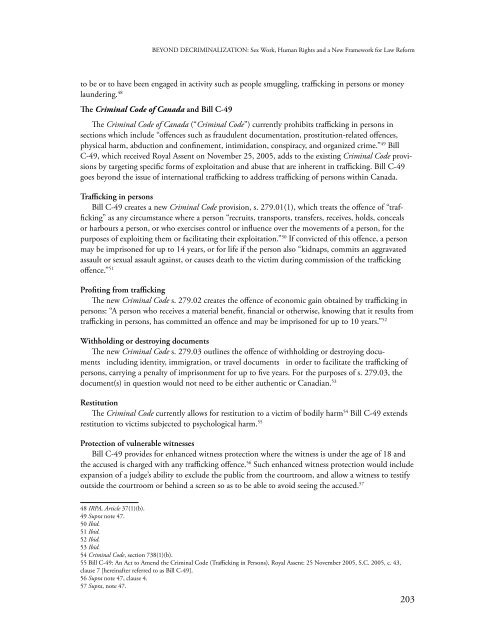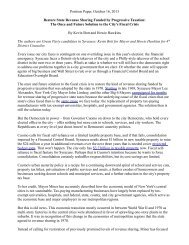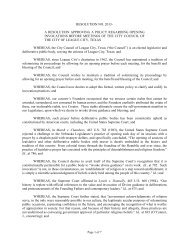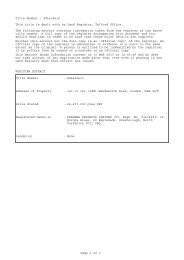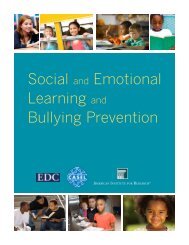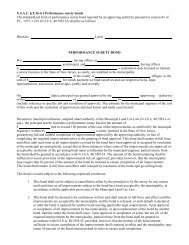Beyond Decriminalization: Sex-work, Human Rights and a New ...
Beyond Decriminalization: Sex-work, Human Rights and a New ...
Beyond Decriminalization: Sex-work, Human Rights and a New ...
- No tags were found...
Create successful ePaper yourself
Turn your PDF publications into a flip-book with our unique Google optimized e-Paper software.
BEYOND DECRIMINALIZATION: <strong>Sex</strong> Work, <strong>Human</strong> <strong>Rights</strong> <strong>and</strong> a <strong>New</strong> Frame<strong>work</strong> for Law Reformto be or to have been engaged in activity such as people smuggling, trafficking in persons or moneylaundering. 48The Criminal Code of Canada <strong>and</strong> Bill C-49The Criminal Code of Canada (“Criminal Code”) currently prohibits trafficking in persons insections which include “offences such as fraudulent documentation, prostitution-related offences,physical harm, abduction <strong>and</strong> confinement, intimidation, conspiracy, <strong>and</strong> organized crime.” 49 BillC-49, which received Royal Assent on November 25, 2005, adds to the existing Criminal Code provisionsby targeting specific forms of exploitation <strong>and</strong> abuse that are inherent in trafficking. Bill C-49goes beyond the issue of international trafficking to address trafficking of persons within Canada.Trafficking in personsBill C-49 creates a new Criminal Code provision, s. 279.01(1), which treats the offence of “trafficking”as any circumstance where a person “recruits, transports, transfers, receives, holds, concealsor harbours a person, or who exercises control or influence over the movements of a person, for thepurposes of exploiting them or facilitating their exploitation.” 50 If convicted of this offence, a personmay be imprisoned for up to 14 years, or for life if the person also “kidnaps, commits an aggravatedassault or sexual assault against, or causes death to the victim during commission of the traffickingoffence.” 51Profiting from traffickingThe new Criminal Code s. 279.02 creates the offence of economic gain obtained by trafficking inpersons: “A person who receives a material benefit, financial or otherwise, knowing that it results fromtrafficking in persons, has committed an offence <strong>and</strong> may be imprisoned for up to 10 years.” 52Withholding or destroying documentsThe new Criminal Code s. 279.03 outlines the offence of withholding or destroying documentsincluding identity, immigration, or travel documents in order to facilitate the trafficking ofpersons, carrying a penalty of imprisonment for up to five years. For the purposes of s. 279.03, thedocument(s) in question would not need to be either authentic or Canadian. 53RestitutionThe Criminal Code currently allows for restitution to a victim of bodily harm 54 Bill C-49 extendsrestitution to victims subjected to psychological harm. 55Protection of vulnerable witnessesBill C-49 provides for enhanced witness protection where the witness is under the age of 18 <strong>and</strong>the accused is charged with any trafficking offence. 56 Such enhanced witness protection would includeexpansion of a judge’s ability to exclude the public from the courtroom, <strong>and</strong> allow a witness to testifyoutside the courtroom or behind a screen so as to be able to avoid seeing the accused. 5748 IRPA, Article 37(1)(b).49 Supra note 47.50 Ibid.51 Ibid.52 Ibid.53 Ibid.54 Criminal Code, section 738(1)(b).55 Bill C-49: An Act to Amend the Criminal Code (Trafficking in Persons), Royal Assent: 25 November 2005, S.C. 2005, c. 43,clause 7 [hereinafter referred to as Bill C-49].56 Supra note 47, clause 4.57 Supra, note 47.203


